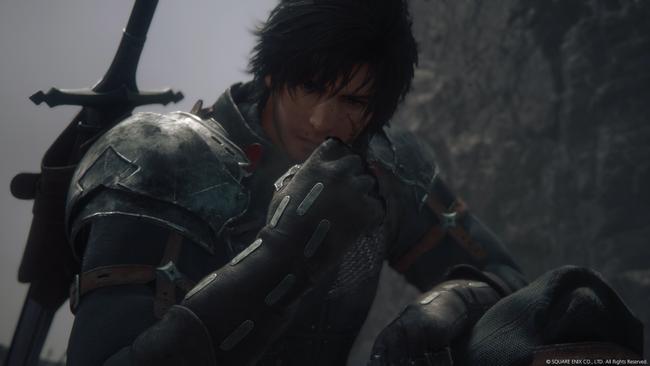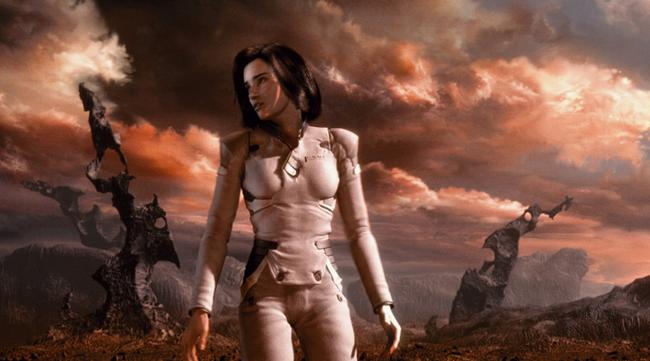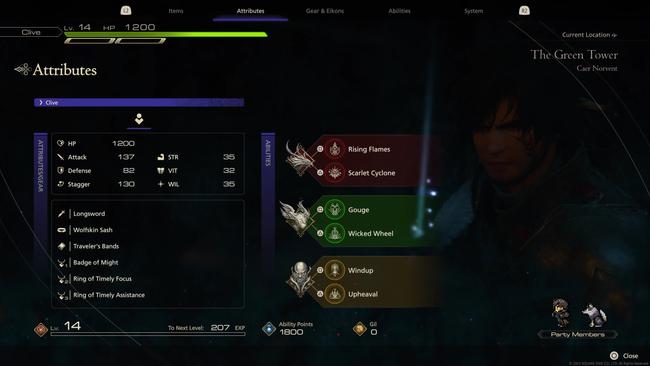
Final Fantasy XVI is a different take - and it's valid to love or loathe that. But saying it's 'not FF' is wrong
Another media drop for Final Fantasy XVI can mean only one thing - another wave of excruciating discussion on the internet about if an action game without playable party members and a distinctly Western-inspired art style is ‘true’ Final Fantasy or not.
The original version of this article was written in the wake of one of FF16's trailers - but today I thought this point was worth a revisit in the wake of FF16's first hands-on previews, a detailed deep dive into many exciting elements of the game, albiet with a slice of gameplay heavily focused on combat. People took a look, and then immediately the same old debates exploded into existence once again.
The pattern is the same - somebody says numbered FFs shouldn’t be action games, or have an art style this ‘bland’ (their words, not mine), and ludicrously suggest that, by looking at and trying to emulate some of the other successful RPGs from outside Japan, FF16's developers have sold out the series' roots. FF has been turned into just another WRPG, they say. Now, the comparions aren't just to Witcher, but also Japanese games that aren't RPGs, like Devil May Cry, which FF16 does appear to share some DNA with.
This is then followed by the hardcore fans who practically bleed elixir when you cut them over-reacting in their response, letting rip with derision and sarcasm. And, honestly - the whole debate is stupid, and toxic, and both sides are right, and both sides are wrong.
First of all, let’s say it out loud: Final Fantasy XVI is absolutely a Final Fantasy game. Whatever FF might ‘be’ to you personally, this new game is a valid interpretation of the series. The truth is, there is no one set of absolute ingredients that ‘makes’ a game a Final Fantasy - and that also happens to be the series’ greatest strength.

When once asked what makes a game a Final Fantasy title, series creator Hironobu Sakaguchi jokingly said, “blue text boxes.” While a gag, like any good joke it needles at the truth behind it. When Sakaguchi made this quip to Yoshinori Kitase during the development of FF13, there’d already been FF titles released without blue text boxes - including Sakaguchi’s self-professed favorite, FF9. Sakaguchi’s point here was pretty obvious, then: if there were any rules about what Final Fantasy ‘is’, they have long since been broken. Traditions have been discarded and revived. Nothing is too sacred. The series is free to roam.
To put forward a hypothesis, Final Fantasy isn’t any one specific element. It isn’t being turn-based, or having ATB, or Chocobos, Airships, and Dragoons. It isn’t about the summons - though they frequently appear. It also isn’t about blue text boxes. But all of these elements play a role. It’s a confluence of a selection of these familiar elements and common ingredients, rather than their absolute presence.
Take Final Fantasy: The Spirits Within, for instance. This is probably the most maligned piece of the series, and the one fans most easily dismiss as ‘not FF’, an extracurricular oddity. But actually, in reality, it’s FF to its core - whatever you think of the ill-fated film’s quality (I feel it's the best FF movie on its own merits - don't @ me, AC fans).

It has the superficial stuff - airships, a Cid, and a world that mingles fantasy, spirituality and science fiction in a manner that doesn’t feel too far divorced from FF7 and FF8 in particular. But most importantly, The Spirits Within’s storyline is steeped in thematic elements that are familiar to a number of Final Fantasy games, most notably the protagonist’s prescription to ‘Gaia Theory’ - the concept that the planet itself is a living organism that interfaces with the souls of its inhabitants - a regular theme in Sakaguchi’s work. Basically, I’m saying that Aerith and Aki Ross would get along famously. The Spirits Within is a very different type of Final Fantasy experience - but it clearly comes from the same place as much of the rest of the series.
Final Fantasy’s willingness to change has always been its greatest strength. It experiments - sometimes for good, sometimes for ill - but the series has always gone for it. This is an important part of its DNA - and FF16 is another expression of that.
You might not like that its developers have clearly spent a lot of time studying Western fantasy, from Witcher to Game of Thrones, or that it’s an action game, or that it doesn’t have playable party members, or that the FF16 characters and their outfits are more grounded and realistic - which therefore makes them more muted than we might perhaps be used to from Tetsuya Nomura or Yoshitaka Amano. One might argue that by looking elsewhere, it’s not as creative - but to argue this would be to bury one’s head in the sand as to FF’s origins, where it readily copied the homework of Wizardry and Dragon Quest, or how the series’ MMO turn was inspired by an EverQuest addiction. There’s endless examples of FF looking outward to define its future.

"When I first joined FF14 and took over, the director [Yoshinori] Kitase-san told me 'Final Fantasy is what the creators at the time think Final Fantasy should be, and that is what you should do when creating this game.' I really took that to heart," FF16 producer Naoki Yoshida recently told Den of Geek and Gematsu.
"I want that to be the same thing creators moving forward can do. What they think is the best thing is what they should make. Because that is what we are doing, creating the best Final Fantasy we can create."
Whatever you think, FF16 is a Final Fantasy game. That status isn’t as much to do with having summons or Chocobos or having Masayoshi Soken break out the familiar musical motifs, either - it’s really obtained by virtue of how its creators have stuck their neck out and taken a tremendous risk to do something the series has never done before. This is exactly what Sakaguchi & his crew of upstart game development punks would’ve done back in the day, too.
But let’s get something else straight, too. It’s okay to not like it. Not being into it is not a capital offense in the fandom. Especially if you really like the J in your JRPGs, it's understandable that this might leave a bad taste in your mouth even more so than the heavily Witcher and Skyrim-inspired, but still aesthetically very Japanese FF15. This is a perfectly valid thing to feel.
Part of how changeable and wildly disparate each numbered FF can be means, inevitably, that sometimes, you’re going to be left behind. Maybe you don’t like the setting, or don’t ‘do’ MMOs. Maybe the protagonist grates on you. These are the risks that come with being a series that changes over time, and tosses everything out for each new entry. It’s alright to have this opinion - and you have a right to express what it is about the game that doesn’t click for you. But understand - it’s still FF.
That’s honestly why these debates are so silly. Final Fantasy is so malleable that it’s difficult to really say from trailers, or art style, or narrative tone what the series really is. It’s more of a vibe, an attitude, a set of values. But beyond that, fans equally don’t have the right to fly off the handle at people who aren’t feeling it. In the earlier days of the Final Fantasy fandom, in the innocent days of the internet at the turn of the millennium, it felt more understood that with this series, sometimes, you just wouldn’t like an entry. And that was okay. It didn’t make you less of a fan. It just meant you had preferences. In the modern age, when everybody is keen to go to war, campaign relentlessly for brands they treat like sports teams, and find fault over nothing, the debate is more toxic - and it shouldn’t be.
If FF16 is your dream entry, every trailer and news update is great news. But if it isn’t, you shouldn’t fear - something different should be right around the corner. That’s the promise of Final Fantasy - and it remains its greatest strength.